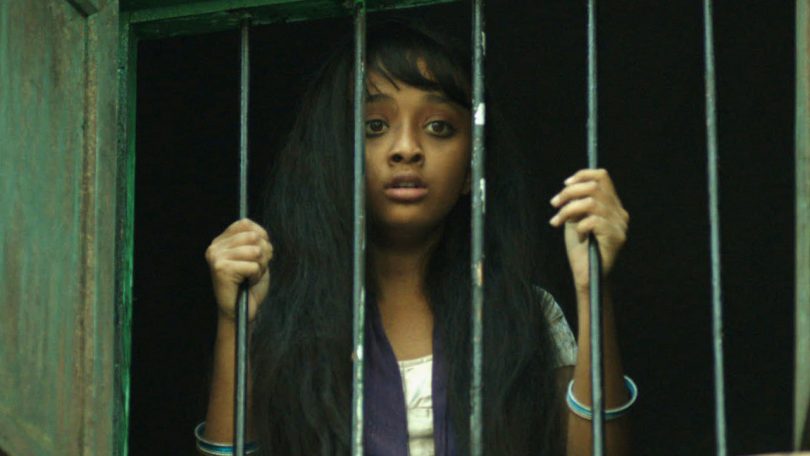T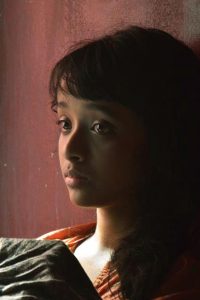 he fastest-growing product for sale in the world isn’t a crop, oil or even new technology.
he fastest-growing product for sale in the world isn’t a crop, oil or even new technology.
It’s children.
Twelve-year-old Lakshmi, whose story is told in Patricia McCormick’s award-winning novel “SOLD” and in a heartbreaking new movie by the same name—being released in the United States April 1—represents just one of 3 million children lost to human trafficking each year. We talked to the film’s director and producer, who have been working tirelessly over the last few years to shed a light on this issue abroad and at home.
Sold into slavery
Lakshmi’s story is one of despair and hope, as it follows her from her village in Nepal, to being sold into a brothel in India, and her fight for freedom.
Countless children—typically girls about 13 years old—are taken from their villages, often by someone they trust. They are promised better lives and the chance to work in the city, and instead, are sold into brothels.
Directed by Academy- and Emmy-award winner Jeffrey D. Brown, produced by Jane Charles and executive produced by two-time Academy Award-winner Emma Thompson; “SOLD” has started a campaign to bring more awareness to the issue of commercially and sexually exploited children–from Southeast Asia to the crew’s own backyard in Seattle.
Putting Faces to an Issue
It’s been a learning journey for Brown and Charles, who optioned the book seven years ago and have been researching trafficking, meeting survivors and advocating for victims ever since.
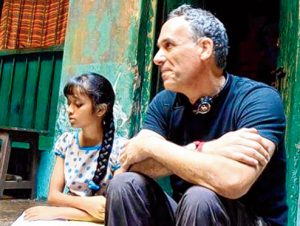 “Making this film broke my heart. I met about 2,000 survivors of the sex trade,” says Brown, who plans to use the film as a vehicle for activism and awareness raising around the world. They have already partnered with Childreach International to launch the #TaughtNotTrafficked campaign, which aims to child trafficking in Nepal through education and keeping children in school.
“Making this film broke my heart. I met about 2,000 survivors of the sex trade,” says Brown, who plans to use the film as a vehicle for activism and awareness raising around the world. They have already partnered with Childreach International to launch the #TaughtNotTrafficked campaign, which aims to child trafficking in Nepal through education and keeping children in school.
Brown and Charles met with non-governmental organizations during writing and filming the movie to learn more about the global issue of child trafficking.
“We learned so much about the issue just from the NGOs and experiencing firsthand the stories of all these girls,” says Charles.
Once they had cast the movie–including Niyar Saikia, who plays Lakshmi and turned 13 during filming–they took the cast to meet survivors as well. Sushmita Mukherjee; who plays Mumtaz, a madam; was introduced to a madam in a brothel in India.
“Everyone on the film really dove in and spent some time with it because they cared; they wanted it to be very authentic,” Charles says. “Niyar got it right away.”
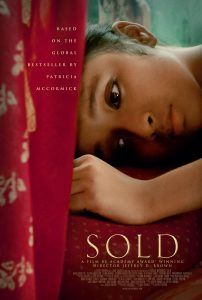 Star Power
Star Power
It was an issue and project that touched Emma Thompson, and the star was eager to sign on.
“Because of ‘SOLD’s’ marvelous script and courageous and brilliant cast, it is a story that we can all watch–so that we may understand the processes of slavery in modern India and feel able to act without feeling the kind of rage and hopelessness that gets in the way of doing anything,” Thompson says.
Actress Gillian Anderson–known for her work in “X-Files,” “Last King of Scotland” and more–plays Sophia, whose character is based on photographer Lisa Kristine, whose photography has helped expose slavery and other human rights issues around the world.
“Working on this sensitively told film and with young women who have themselves experienced the unbelievable trauma of trafficking has opened my eyes to the horrors these young people face on a daily basis as well as the often life threatening danger those working at the charities put themselves in to free these innocent victims from modern day slavery,” says Anderson. “We also need to work on tackling the causes of trafficking. Education is key, which is why I’m proud to support the #TaughtNotTrafficked campaign with Childreach International.”
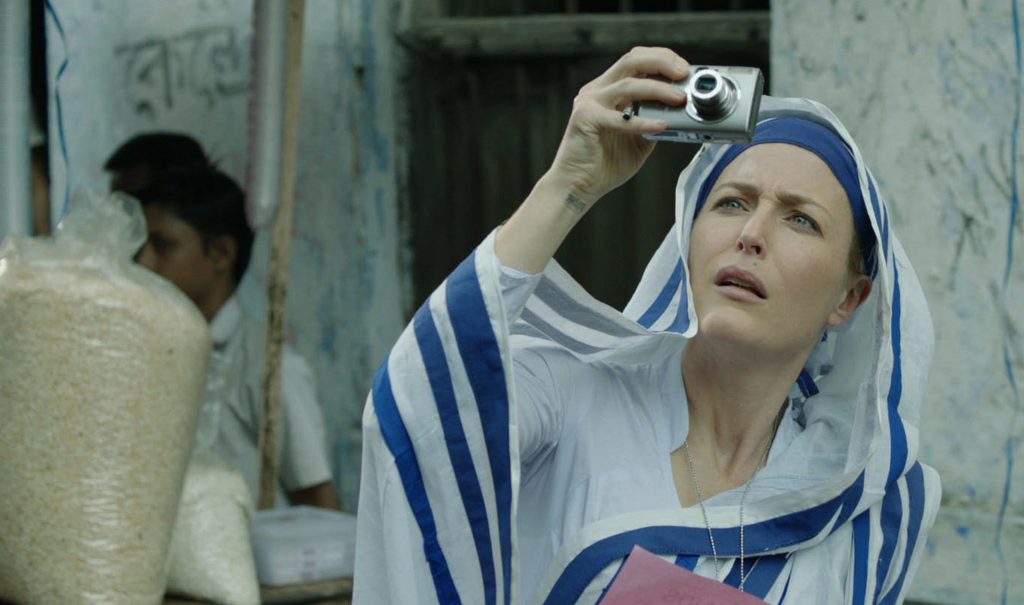
Taking Action
Human trafficking can seem overwhelming, but “SOLD’s” lens on Lakshmi as she struggles to maintain her humanity and escape from the brothel helps audiences connect to the issue.
“We’ve always looked at the movie as a tool for change and a large entry point to the issue of human trafficking. And then what we want to provide with our outreach as we release the film, is a way for people to engage in their own communities, a way for them to find out more information, a way for them to tell other people about the film, which we’ll do in many different ways,” says Charles. The film, which has been translated into 32 different languages, is already helping to raise awareness.
In the same way, the “SOLD” team is working to make addressing the issue of trafficking–globally and in the United States–more accessible to community members.
“Listening is important,” Charles says. “In the United States, every community is different so you’ll really need to find out what services are already there, what’s needed, by the service providers, so they can better serve the commercially sexually exploited children of that community, and then find a way to provide that.
Their journey has led Charles and Brown to found Stolen Youth, a 501(c)(3) nonprofit organization formed in Washington State, to support commercially sexually exploited children through advocacy and fundraising. The group has raised about $800,000 annually at its luncheons and works with efforts like Seattle’s Organization for Prostitution Survivors. They also support creating safe spaces for survivors, educating and vocationally training girls to keep them out of prostitution or vulnerable positions, and changing laws so girls can be better protected.
Educating Communities
Human trafficking, while a problem in every country, looks very different depending on the community. In the United States, girls aren’t tricked and kidnaped into brothels–however, pimps prey upon runaways and abused teens at places like malls. Girls will be coerced by older men they believe to be their “boyfriends”–and by the time they discover the truth, they’re often too ashamed or trapped to escape.
There are some similarities. In all cases, education can increase a girl’s chance of staying out of prostitution by 80 percent. In all cases, the average age a girl is first trafficked is 13 years old. And in all cases, raising awareness and changing the conversation to care for and listen to girls helps.
“Things are changing,” Charles says. “It used to be that 14-year-old prostitutes were seen as criminals. Now with a lot of work on the part of the NGOs and senators like Jeanne Kohl-Welles in Seattle, laws are changing and also the police officers are getting educated about human trafficking, so that when they bring in a young girl, an underage prostitute, they understand that she’s a victim.”
Education is crucial—for girls and young women so they can take the lead in their own lives, and for communities, men and women everywhere.
“It’s really important for us to educate the boys early that it’s not OK to marginalize girls and objectify girls. And education both for boys and girls on this issue is important,” says Charles.
It’s a hopeful approach, and one that can be seen in the movie, where throughout her ordeal, Lakshmi doesn’t lose her spirit or determination.
“That was really important to us, Charles says. “That there’s hope; there’s a way out, and people can see that the human spirit isn’t broken in this situation. It’s such a horrible place to be, but when these girls do get out, when they’re back in their own community or they’re back in a shelter and with kids their own age, you see them coming back and you see that they really are just kids.”
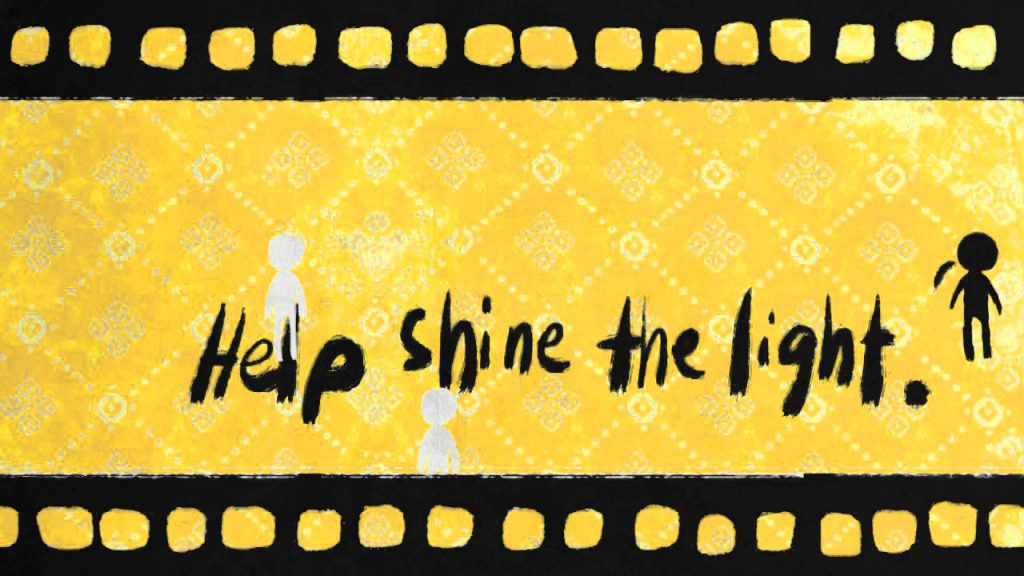
Learn more
“SOLD” the Movie
“SOLD” on Facebook
“SOLD” on Twitter

